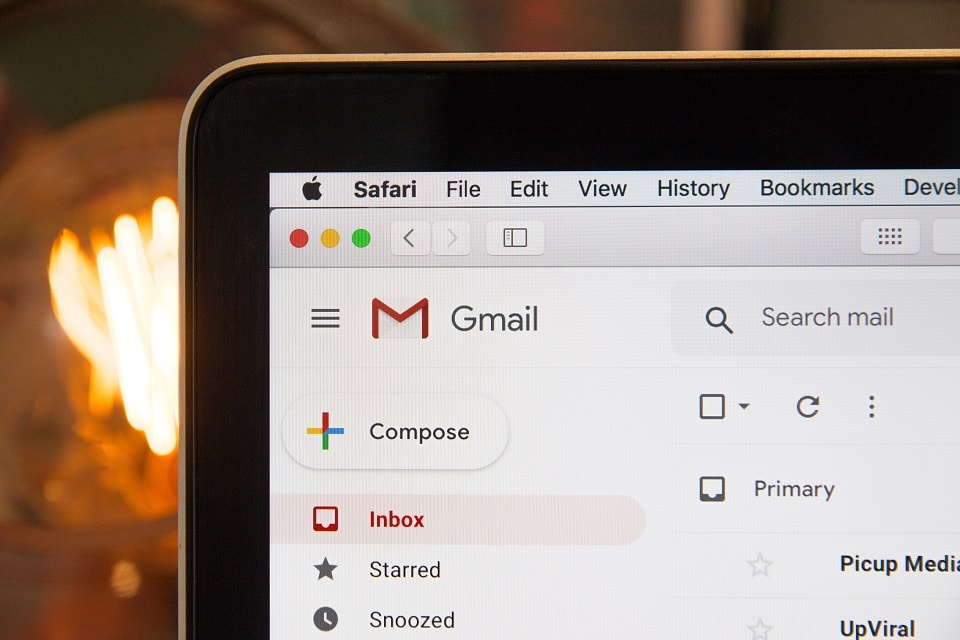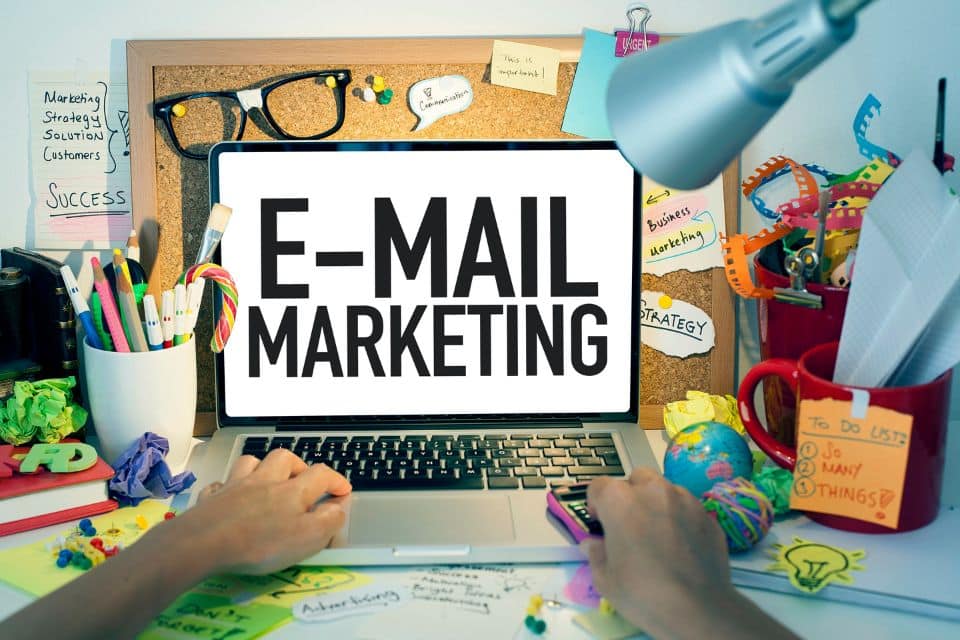Looking for captivating subject lines to make your real estate email marketing campaign stand out? We’ve compiled a list of 50 enticing subject lines to help you grab your audience’s attention and drive engagement.
From highlighting exclusive listings and hot property deals to providing expert tips on buying, selling, and investing in real estate, these subject lines cover a wide range of topics.
Whether your target audience is first-time home-buyers, investors, or luxury home seekers, there’s something for everyone.
Craft compelling emails and watch your open rates soar as you entice recipients with subject lines that promise dream homes, insider knowledge, market trends, and valuable resources.
Don’t miss the chance to make a lasting impression with these attention-grabbing subject lines for your real estate email campaign.
Here are 50 subject lines for a real estate email marketing campaign:
- Discover Your Dream Home Today!
- Exclusive Listings: Your Perfect Home Awaits.
- Get the Best Deal on Your New Home!
- Don’t Miss Out on These Hot Property Deals.
- Find Your Forever Home with Us.
- Your Guide to Real Estate Success Starts Here.
- Uncover the Secrets of the Real Estate Market.
- Your Future Home is Just a Click Away.
- Expert Tips for Buying or Selling Real Estate.
- Experience Luxury Living at Its Finest.
- Your Ultimate Real Estate Investment Guide.
- Discover the Hottest Neighborhoods in Town.
- Make Your Home Stand Out with Professional Staging.
- Unlock the Potential of Real Estate Investment.
- Find Your Perfect Rental Property Today.
- The Ultimate Guide to Home Buying in [City/Region].
- Your Home-Selling Journey Made Easy.
- Get the Best Return on Your Real Estate Investment.
- Start Your Real Estate Portfolio Now.
- Your Search for a Dream Home Ends Here.
- Join Our Open House Event for Exclusive Offers.
- Real Estate Market Trends: What You Need to Know.
- Tips for First-Time Home Buyers.
- Discover the Charm of Historic Homes in [City/Region].
- Invest in Real Estate for Long-Term Financial Security.
- Find Your Ideal Commercial Property.
- Experience the Luxury of Waterfront Homes.
- Your Home Valuation: Know Your Property’s Worth.
- Say Hello to Your New Home!
- Expert Insights on Real Estate Market Forecast.
- Your Guide to Buying a Home in a Seller’s Market.
- Exclusive Condos: Experience Modern Living.
- Uncover Hidden Gems in the Real Estate Market.
- How to Negotiate the Best Price for Your Home.
- Your Dream Home, Within Reach.
- Real Estate Investment Strategies for High Returns.
- Discover Your Perfect Vacation Home.
- Selling Your Home? We’ve Got You Covered.
- The Top Real Estate Trends of [Year].
- Find Your Perfect Fixer-Upper Property.
- Don’t Miss Out on the Best Real Estate Deals in [City/Region].
- Explore Luxury Homes in Prestigious Neighborhoods.
- Your Guide to Renting vs. Buying a Home.
- Get Pre-Approved: Your First Step to Home Ownership.
- Real Estate Financing Made Easy.
- Discover the Benefits of Owning Rental Properties.
- Your New Home Search Starts Now.
- Expert Tips for Home Staging to Attract Buyers.
- The Ultimate Real Estate Resource Hub.
- Your Key to Real Estate Success.
Please note that these subject lines are provided as examples, and it’s important to tailor them to your specific audience and campaign goals.
What Is The Best Software For A Real State Email Marketing Campaign?
There are several excellent software options available for real estate email marketing campaigns. Here are some popular choices:
1. Mailchimp:
Mailchimp is a widely used email marketing platform that offers a user-friendly interface, customizable templates, automation features, and detailed analytics. It integrates with popular real estate CRMs and provides robust segmentation options.
2. Constant Contact:
Constant Contact is known for its simplicity and ease of use. It offers a range of professionally designed templates, contact management features, automation tools, and real-time reporting. It also provides social media integration and event management features.
3. Campaign Monitor:
Campaign Monitor is a versatile email marketing platform that offers customizable templates, advanced segmentation, automation workflows, A/B testing, and detailed analytics. It provides seamless integration with popular real estate CRMs and has a user-friendly drag-and-drop interface.
4. GetResponse:
GetResponse is an all-in-one marketing platform that includes email marketing, automation, landing pages, and webinar hosting. It offers a variety of templates, advanced segmentation, marketing automation workflows, and robust analytics.
5. AWeber:
AWeber is a reliable email marketing solution that provides customizable templates, automation features, subscriber segmentation, and detailed reporting. It integrates with popular real estate CRMs and offers a user-friendly interface.
Ultimately, the best software for a real estate email marketing campaign depends on your specific needs, budget, and desired features. It’s recommended to explore trial versions or demos of these platforms to see which one aligns best with your requirements.
What Is The Best Length Of Email Body For A Campaign?
The ideal length of an email body for a campaign can vary depending on the content and purpose of the email, as well as the preferences of your target audience.
However, as a general guideline, keeping your email body concise and focused is key to maintaining reader engagement.
In most cases, it’s recommended to aim for a length of 100-200 words for promotional emails. This allows you to deliver your message effectively without overwhelming the reader with lengthy paragraphs.
Breaking up the content into shorter paragraphs and using subheadings or bullet points can also improve readability.
That said, there may be instances where longer emails are necessary, such as when providing in-depth information or educational content.
In such cases, ensure that the content remains highly valuable and compelling throughout, and consider using formatting techniques like headers, bold text, and bullet points to make it easier to skim.
Remember, it’s important to respect your readers’ time and attention. Keeping your email body concise, focused, and relevant to your audience’s needs will generally yield better results and higher engagement rates.
Always test and analyze the performance of your emails to find the optimal length for your specific audience and campaign objectives.
What is the best practice of email schedule for a Real Start email marketing campaign?
Determining the best email schedule for a real estate email marketing campaign involves understanding your audience’s preferences, optimizing engagement, and avoiding excessive email frequency.
While there isn’t a one-size-fits-all approach, here are some best practices to consider:
Consistency:
Establish a regular email cadence to build anticipation and maintain engagement. Whether it’s weekly, bi-weekly, or monthly, stick to a consistent schedule so that recipients know when to expect your emails.
Avoid excessive frequency:
Bombarding your audience with too many emails can lead to fatigue and high unsubscribe rates. Strike a balance by spacing out your emails to avoid overwhelming recipients.
Monitor engagement metrics to determine the optimal frequency for your specific audience.
Test optimal send times:
Experiment with different send times to find when your emails receive the highest open and click-through rates. Consider factors like time zones, work schedules, and typical consumer behavior in the real estate industry.
Early mornings, mid-week, or weekends may work well, but the ideal timing can vary based on your target audience.
Segment your audience:
Segmenting your email list based on factors such as location, demographics, interests, or stage in the home-buying process allows you to deliver more targeted and relevant content.
Customize your email schedule and content for each segment based on their specific needs and preferences.
Personalize and automate:
Leverage automation tools to personalize emails and deliver relevant content at the right time. Use triggers, such as website visits or specific actions, to send automated follow-ups or nurture leads.
Monitor and analyze results:
Regularly analyze email performance metrics, including open rates, click-through rates, and conversions. Identify patterns, trends, and audience preferences to refine your email schedule and optimize engagement.
Remember, finding the best email schedule is an iterative process. It’s essential to continually test, measure, and adjust your strategy based on data and feedback from your audience to achieve optimal results.


